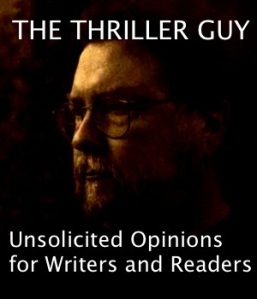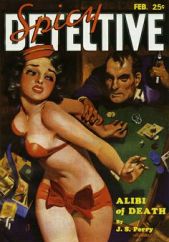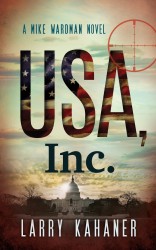By Larry Kahaner
Sheri McInnis has enjoyed success with big publishing houses, but is now going indie with her new books.

Sheri McInnis
Why not go with the big houses if they’ve published you before? Sheri explains it in the following blog entry in ways that make sense for many professional authors. She may be on the cutting edge of book publishing these days with phrases like “multi-published author” making the rounds. A multi-published author is someone who publishes both with traditional publishers as well as independently. (I know; some use the phrase to mean something different.) We’ve witnessed an increasing amount of crossover lately especially from authors who publish an e-book on their own, which is then bought by a legacy publisher. (Witness the self-published book The Martian, later bought by Crown and now a movie blockbuster.) Or, in some cases, traditionally-published authors who, for their own reasons, want to publish a particular work independently – like Sheri. The lines are blurring.
I often voice a low opinion of indie books. Just like anyone with a smartphone seems to think they’re a photographer, anyone with a computer and an internet connection reckons that they’re an author. Yeah, they’re an author, technically speaking, but their stuff often stinks because there is no filter, a role that agents, editors and legacy publishers filled. This sieve kept a lot of poor writing from reaching the bookshelves. Not always, but often. On the other hand, nothing gives me a greater surprise than to read an indie author who has penned a book to make a publisher wish they had paid closer attention to their slush pile. Here’s a recent find: Dream Brother: A Novel by Brian Marggraf. And another: Mintwood Place by Bob Gilbert. One more: The Test of Time by Allen Appel (Allen is a colleague who was also published by large houses).
Thanks to Gordon A. Wilson, on whose website this first appeared, and to Sheri for permission to publish her post.
—
The Top 5 Reasons I’m Self-Publishing – Instead of Going Back to the Big Guys
by Sheri McInnis @SLMcInnis
1) CONTROL
I’ve worked with some of the most successful editors in the business – and I was especially fond of my first one at Atria. But that didn’t make the revision process any easier.
Because as much as publishers hail creative freedom, unless you deliver an ‘approved manuscript’ your book won’t even be published. That means there’s subtle pressure on you to take your editor’s notes – whether you agree with them or not.
The editor isn’t the only one who requests changes either. Notes will come from your agent, the editorial assistant, even the publisher. And their input can range anywhere from the helpful to the heartbreaking.
Even the marketing department gets in on things. For instance, the marketing people didn’t like the original title of my first book, so the publisher changed it to Devil May Care. Bad luck for me because at around the same time another ‘devil’ book came out. But you probably heard of that one.
The Devil Wears Prada was so popular, people didn’t just confuse the titles – they actually thought I was Lauren Weisberger! One bookstore manager was so excited to meet because my book was “just flying off the shelves!”
You can’t imagine how disappointed we both were when I got to the store and he had a huge stack of Prada waiting for me to sign.
Remember, there are lots of people who get involved in publishing your book, and as the author you aren’t the one with the most control.
2) TIMING
Even if I signed a contract tomorrow, the book wouldn’t hit the shelves for at least eighteen months – probably more. I simply don’t want to wait that long.
For one thing, I’m not getting any younger. But most importantly, the main part of the book takes place in 2021. There are technological advances and environmental disasters that only make sense with a believable padding of time.
I also have a specific release date in mind – November 11. The book – a supernatural thriller called The Hunter’s Moon – is about witches and this date is pivotal to the main character’s story arc.
But unless I’m Stephen King or Sophia Kinsella, it would be crazy to request a particular release date from a publisher. They have hundreds – if not thousands – of titles carefully staggered over many seasons.
Even then, a publisher has the right to change the release date – which happened on my second book, By Invitation Only. A more popular writer bumped the release by a month. That writer was Sophie Kinsella.
3) MONEY
Just a handful of years ago, even a mediocre book advance was in the fifty thousand dollar range (that’s what mine were; though I shared the second with my co-writer).
Unfortunately, publishers didn’t fare well after the 2008 recession. My (former) agent told me most advances were down to about 10% what they were – and the business is still recovering.
The downturn also resulted in less money for promotion. Book tours, launch parties and flashy displays are for only a lucky few writers. So whether you self-publish or not, you still have a huge job of promoting the book yourself – both in terms of time and money.
There are still great book advances out there. Romance writer Jasinda Wilder recently signed a 7-figure book deal with Berkley. Of course she had quite a bit of success already. She’d sold two million e-books as an indie author.
What I find most interesting is that even with a big contract, Jasinda is going to continue to self-publish some titles. According to the Guardian, the most financially successful – and happy – writers are ones with a foot in both camps.
4) PRACTICALITY
In all honesty, it would probably take years – if ever – for me to get another book deal. Neither of my novels were disasters but they didn’t perform as well as expected. What’s worse, I turned into an emotional wreck after the books flopped and actually gave up writing fiction (twice), meaning I wasn’t able to quickly write another book to bounce back.
So why would a publisher take a chance on me when there are so many great first-timers out there? Or thousands of bestselling indie authors who already have a loyal following?
Over and above the performance of my books, I’m launching into a genre that I have no experience in. There’d have to be a lot of changes in the publishing world before someone signed me simply because ‘this idea came to me in a dream.’
If I want to continue writing, I really don’t have a choice but to go indie. Which brings me to …
5) BECAUSE I CAN
Since the beginning of the printing press, books have been expensive and complicated to produce, which is why authors have always been dependent on publishers to print and distribute their work.
However, in just a few short years, indie writers have changed the game completely. Today every writer on the planet has the opportunity to reach millions of readers, and there isn’t the same stigma to self-publishing that there once was. That’s not just a change in the publishing world. It’s a revolution in the way stories are told.
Whether you decide to follow the holy grail, choose to self-publish – or try some combination of the two – it’s an exciting time to be a writer. Telling stories is what really counts, no matter how we get it done.















